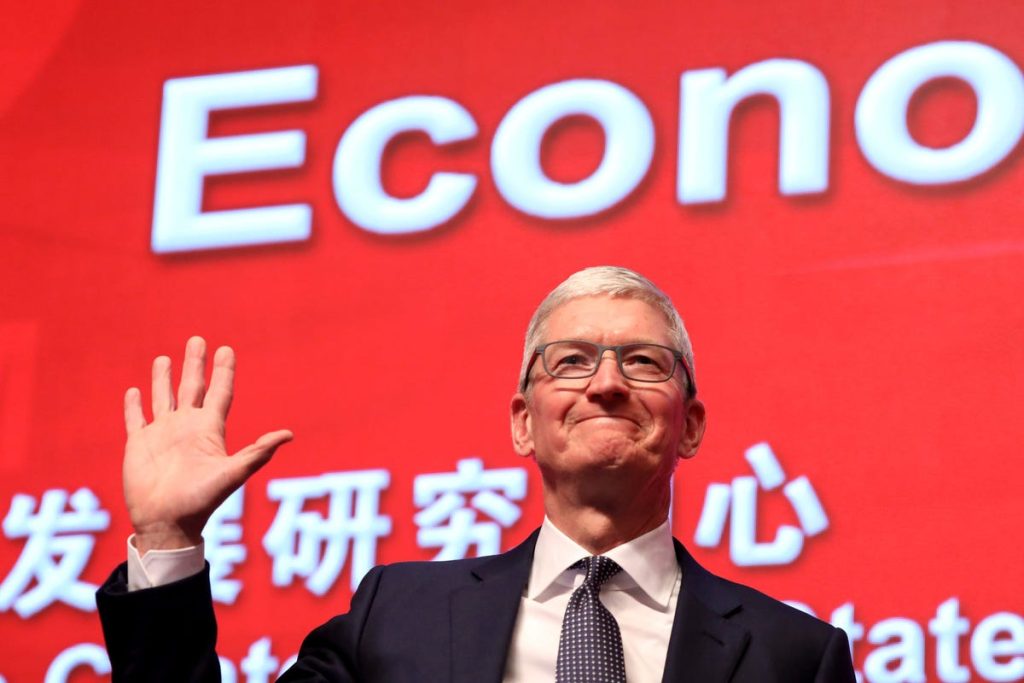Before 2017, China was the best thing in the world to corporate America, Wall Street and to many lawmakers and lobbyists on Capitol Hill. Trump changed all that. Biden kept apace with the Trump-era China strategy, even going harder on export restrictions and capital market sanctions. Companies like BlackRock
BLK
and Vanguard have had to sell millions of shares in Chinese companies listed here and abroad because they were deemed too close to the military.
Then Covid happened. China locked down. Everything was a mess. Companies that love doing business in China realized they needed to source from other places, too. The Chinese economy wasn’t growing as much as it used to. And investors soured.
Now China wants them back. No more lockdowns, they tell us.
In a story by The Economist on April 6, we learned foreign investors are “flooding” into China after the Covid hiatus. This was mostly portfolio investments.
China’s leaders are asking global investors to forget their ludicrous Zero Covid policy and are trying to rekindle the romance. You know, the one that had them all salivating at the prospects of selling to Chinese consumers, let alone making widgets there at bargain basement prices that they can then sell to us at a 100% markup.
Recent weeks were spent hosting a “reopening party” in Beijing, The Economist magazine noted. Tim Cook of Apple
AAPL
and Ray Dalio of Bridgewater were there; this was on the sidelines of the so-called “Davos of Asia”, officially known as the Boao Forum.
At the event, Li Qiang, Xi Jinping’s newly promoted deputy, doubled down on promises of reform and opening up new markets to foreigners. A read-out from the Boao Forum told those in attendance that “China will open its door even wider to the world,” and that it welcomes investors to “share more of the dividends of China’s opening up and development.”
But times have changed. China is seen as a real enemy in Washington now. Corporations are walking a tightrope. Such estranged ties were not the norm in the Obama/Biden years. They are the norm in the Biden/Harris years.
China Workers & American Stocks
Here is one way the Chinese Communist Party can recruit powerful entities in the U.S. to work on its behalf and get even more free lobbying from Wall Street and global businesses.
Ready for this?
Here goes:
The CCP and its securities regulators should offer Apple, Disney and Nike
NKE
a listing on the Hong Kong or Shanghai Stock Exchanges.
Most of these companies either make everything in China, or garner sizeable portions of their revenues from Chinese consumers. Why not give these people a shot at investing in the company they make things for, or whose amusement park and movies they pay to attend? That’s the elevator pitch.
Try to imagine this offer.
Mr. Cook, would you like access to millions of retail investors who cannot invest in Apple shares here? How much money do you think you could raise from that?
Only a few Chinese registered investors can invest in the U.S. stock market. If Apple was listed in Hong Kong, it would open the market to new shareholders and fresh capital; money falling from the sky like manna from heaven.
Hong Kong would be the first to offer.
The table is already set. On March 31, 2021 the Hong Kong Stock Exchange published its Consultation Paper on reforms to permit foreigners to list shares there. The conclusions were published on November 19, 2021 and new rules were made effective in January 2022.
Clearly, American companies have not made a move. Maybe they were not asked. Perhaps they think it is too risky, given the political climate. (They’d be correct on that.)
China should drop the bait in the water and see if any of the big three China-centric companies take a bite. There is a chance Beijing already suspects it would complicate matters for those companies and will not recommend it.
But if they did, heads would explode in Washington D.C.
If Washington wants to make it harder for corporate America to push back against its China policies, they might wish to war game this scenario. Because if China needed an even bigger ally in the U.S., then offering major corporations a chance to capture the investments of millions of retail investors is one way to get it. Once listed on a Chinese exchange, the threat of forced delisting by Beijing would turn them into staunch China allies, something Washington could do without.
China would have Washington’s most hawkish capital markets policies surrounded, so to speak, with U.S. companies quietly begging D.C. not to ruin their share price in China.
If China ever pulled that one off, it would be the evil genius move of the decade for the CCP.
Read the full article here



